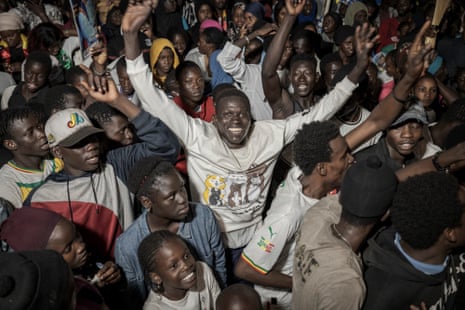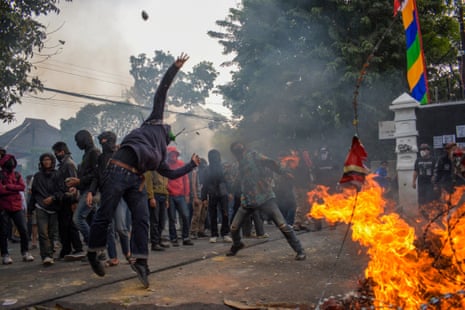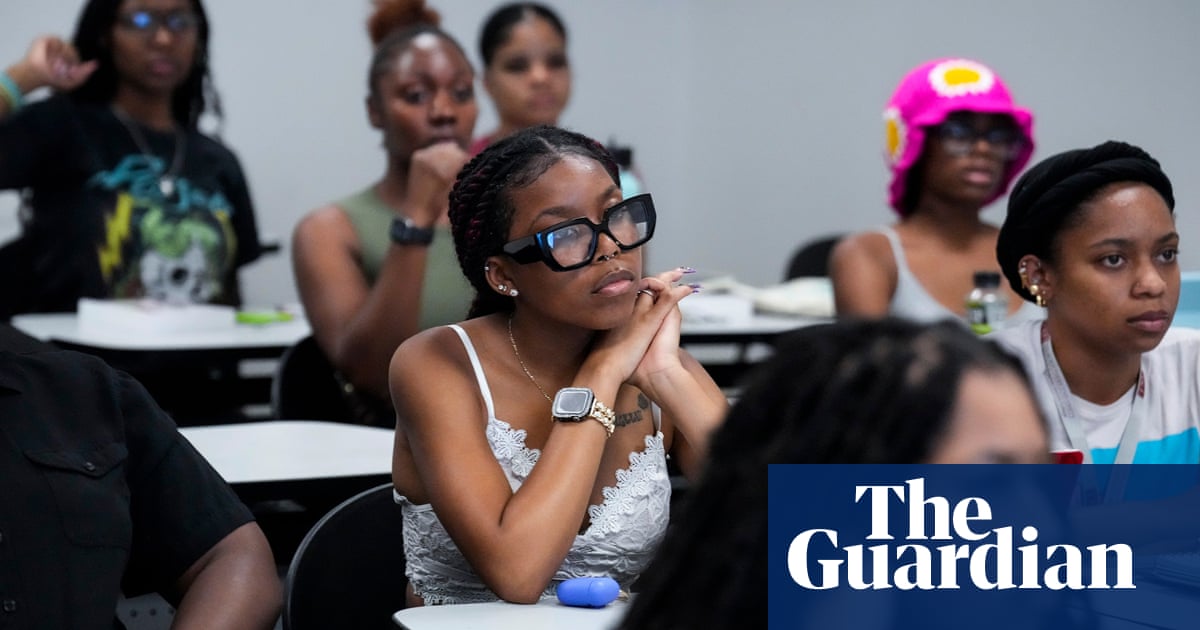From India to Venezuela and Senegal to the US, democracy was tested, as more people voted than in any year before
In January, as this bumper year of elections got under way, breathless editorials and reheated hot takes made it clear the stakes could not be higher. Time magazine pronounced it a “make-or-break year for democracy”, while others declared it “democracy’s biggest test” and asked whether the very concept could make it to December intact.

In 2024, billions of people voted across more than 80 countries, including some of the most populous, most authoritarian and most fragile. Russians voted in polls that were characterised by their repression, while in Senegal, an attempt to delay elections led to the incumbent’s downfall. El Salvador’s president found an election-winning formula through his fierce crackdown on gangs, while a brief experiment with democracy was seemingly snuffed out in Tunisia, the birthplace of the Arab spring.

Throughout it all, the relative strength or weakness of global democracy hung in the balance, with the presidential election in the US sitting at the end of the year like a giant question mark.
So, how did democracy fare in 2024?
Even before the year began, warning lights were flashing around the world. Between 2020 and 2024 a fifth of all election results faced a challenge in some form, research from International IDEA found. In the same period, one in five elections saw the losing candidates publicly reject the outcome, while opposition parties boycotted one in 10 elections.
Combined, these factors were said to pose a serious challenge, as voters questioned the very viability of the electoral process and participation declined.
The UK’s 2024 general election resulted in near-historic swings to the Labour party as the Conservative party’s majority was shattered by years of scandal and dysfunction. There were also record levels of apathy. Just over half of British adults voted, making it by some measures the lowest turnout by share of population since universal suffrage.
But as the results of elections held across the world are combed through, the UK could prove to be an outlier. Analysis of the International IDEA voter turnout database shows that on average, voter turnout has risen for the first time in almost 20 years.
Across the year though, experts found that the very tentpoles of successful democracies – freedom of speech, equality of participation and plurality of media and corporate ownership – were facing near unprecedented threats. If not in decline, democracy was certainly under attack.
As some forecast the further hollowing of democracy, well-organised citizens and oppositions showed how the slide into autocracy could be stymied.
“We’ve seen some real possibilities for hope,” said Rachel Beatty Riedl, the director of the Center on Global Democracy at Cornell University, who pointed to Senegal – a nation on the periphery of west Africa’s “coup belt” – as an inspiration.

In March, an attempt by the incumbent president to delay elections backfired, energising the country’s young population to back the opposition candidate Bassirou Diomaye Faye, who was swept into power with unprecedented popular support.
“Citizens and the institutions forced the incumbent – who was causing a lot of concern for the democratic process – to step down,” said Riedl. “Democracy is alive in Senegal because of citizens’ demand for compliance with the rules of the electoral game.”
In other cases, democratic accountability was found not at the ballot box, but on the streets. In January, Bangladesh’s incumbent prime minister Sheikh Hasina won a fifth term, in elections that saw tens of thousands of opposition figures arrested and protests met with heavy police violence.
Just a few months later though, Hasina had fled the country, forced from power by student-led protests that were sparked by opposition to a quota system for government jobs. They quickly evolved into a wider mass movement against the erosion of democracy that characterised Hasina’s time in power.
An interim government, led by the Nobel laureate Muhammad Yunus, is now tasked with ambitious democratic reforms to rebuild key state institutions from scratch – efforts that analysts say could take years.

“The best response to those who challenge democracy is usually more democracy,” Cornell’s 2024 report on global democracy said, pointing to “greater participation and representation of democratic citizens within existing institutional channels”.
Even in cases such as Venezuela, where public protests failed to achieve their stated aim, the delegitimising effect of a potentially stolen election could prove to be fatal in the long term. Despite declaring victory in August’s presidential elections, Nicolás Maduro’s failure to release voting data and a crackdown on opposition leaders sparked a wave of protests that have deeply damaged the president’s authority.
Even countries with longstanding ties to Maduro’s political movement – such as Brazil and Colombia – refused to recognise the election results. Brazil’s vetoing of Venezuela’s admission into the Brics group of emerging economies last month could prove to be a decisive moment for the embattled Maduro.
The ‘cure’ for democracy’s faults
But if popular protest was a defining characteristic of 2024, so too was an emerging passivity when it came to enthusiasm over what democracy could deliver voters. In the US, nearly half of all voters said that democracy did not do a good job of representing ordinary people, while a poll of more than 30 African countries saw support for democracy decline.
“One needs to be careful about saying that people have given up on democracy, but I think they have less expectations of what it can deliver,” said Vedi Hadiz, the director of the Asia Institute at the University of Melbourne.
In February, Indonesia elected as president Prabowo Subianto, a former general dogged by allegations of human rights abuses. His opponents claimed that the vote had been undermined by unfair rule changes, while the outgoing president, Joko Widodo, was accused of interfering in the election in order to protect his legacy.
The country’s constitutional court rejected these arguments, but the electoral process is likely to have left a bitter taste in the mouths of many voters.

“Most people in Indonesia will say the democratic process is at least fine,” said Hadiz. “But if you poll more deeply, they will also say that it does not rectify such things as the maldistribution of wealth and of opportunity … and it has done nothing to actually protect the rights and the interests of ordinary people.”
It had never been harder to be a democracy activist in Asia said Hadiz, because there were fewer and fewer successful models to point to.
“All the major western democracies have experienced democratic backsliding with the rise of rightwing populism, anti-immigration sentiment and the decline of the welfare state.”
Authoritarian forces could point to “strong leaders” as the “cure” for the faults of democracy, said Hadiz.
The creeping influence of billionaires
Democratic backsliding is occurring in an unprecedented number of wealthy countries once thought immune to such forces as well, according to Riedl.
Such processes are incremental and harder to recognise in real time, Riedl states in her study on the issue, but they may further weaken trust in democracy.
Conversely, these trends of “backsliding” have also proved to be a mobilising force for pro-democracy candidates to unify, in opposition to authoritarian figures. It’s what helped propel a grand coalition led by the former European Council president Donald Tusk to victory in Poland’s 2023 election. And it’s what persuaded Kamala Harris to reach across the aisle to court Republican voters who may have been turned off by Donald Trump.
Exit polls released on the night of 5 November showed US voters placed “democracy” as the most important issue when deciding how to vote. The final result then – to elect a candidate accused of attempting to subvert a previous election, and who promised to be a dictator on “day one” – may have come as a surprise to outside observers.

In many ways, the US is at the cutting edge of the trends that are most clearly emblematic of democratic danger: an electoral process interfered with by foreign powers, an avalanche of misinformation and a growing plutocratic class that has been able to buy its way into power.
In 2024, Elon Musk, the world’s richest person, set a new standard for how billionaires can influence a country’s democracy. Musk did more than just pump up to $200m of his own money into Donald Trump’s campaign – he coordinated canvassing, appeared in person at rallies and transformed his social media platform, X, into an echo chamber amplifying right-leaning voices.
His intervention in the country’s democratic process appears to have paid off: Musk’s net worth jumped by $70bn in the week after Trump’s victory and the president-elect appointed him to lead a “department of government efficiency” to advise on slashing regulations and restructuring federal agencies, many of which affect Musk’s own companies.
The creeping influence of billionaires in government and on the electoral process was felt strongly by voters, from India, to Thailand, to the United States, said Hadiz, who added that such plutocrats could be a powerful force in engendering apathy.
“When you see somebody like Elon Musk go in front of a crowd of thousands of people and jump up and down on the stage as if he was experiencing some sort of out-of-body orgasmic experience … then there is not much for them to actually get out of bed for in the first place.”
A gender imbalance
Despite more people voting in elections than at any time in history, political organisations put forward few female leadership candidates in 2024. There were no female candidates for the top jobs in elections in Indonesia, India, the UK, Pakistan and South Africa.
As of November, the number of UN member states with a female head of government was 17, slightly down from 19 in 2023.
Stanford University researchers suggest that as well as gender stereotypes holding back female politicians, they are also hampered by voters who decide not to back their preferred female candidate because they believe it will be too difficult for her to win. In the US, women did show up for Kamala Harris but less than they did for Joe Biden in 2020.
Directly south of the US border, however, the former Mexico City mayor Claudia Sheinbaum won the presidency. Mexico’s parliament now has some of the highest levels of female participation in the world, in part due to gender parity laws.

Globally, the scene is much worse, with the percentage of women in legislatures at just over 27% on average in October, according to the Inter-Parliamentary Union (IPU), an independent organisation. That was a rise of just 0.2% since last year.
At the current rate, it will take 130 years before gender equality is reached in the highest positions of power, according to the UN.
The curse of incumbency
With the benefit of hindsight, 2024 might be better remembered as a year in which voters used the ballot box to punish incumbents for economic issues that were often well beyond their control.
There is little evidence from the elections to show global trends to either the left or the right side of politics, rather it was who was in power at the time who lost out.
Research from the Financial Times found that every single governing party in the developed world which stood for election in 2024 lost vote share. The paper notes that this was the first time in the history of universal suffrage that such an outcome was recorded.
Across a number of countries, including the UK, Japan, Austria and Portugal, voters angered by cost of living concerns and a perceived failure to deal with them, inflicted huge pain on incumbent parties and politicians.
In the end, the lessons of 2024 are likely not to be drawn from politicians that emerged victorious, but from those who accepted their defeats with grace and probity.
After a bruising election in the US, which saw bomb threats at voting booths, an attempt to assassinate Trump and police snipers watching over ballot counters, Harris took to the stage to concede defeat, promising to continue the fight “in the voting booth, in the courts and in the public square”.
The fundamental principle of American democracy, she said, was that when a person lost, those results were accepted. It was a sentiment that just a few years ago might have appeared hackneyed or cliched, but that hit hard in a country that faced unprecedented threats to its institutions.
But despite the violence and retribution which characterised so much of 2024, it was a sentiment which echoed in elections across the globe, from Lithuania to Taiwan to the leafy suburbs of England, from where the former UK chancellor Jeremy Hunt spoke to an awaiting crowd on 5 July having just held on to his seat, knowing that his Conservative party was facing a defeat of near-historic proportions.
“We are incredibly lucky to live in a country where decisions like this are made not by bombs or bullets,” Hunt said.
“This is the magic of democracy.”

 4 weeks ago
21
4 weeks ago
21













































